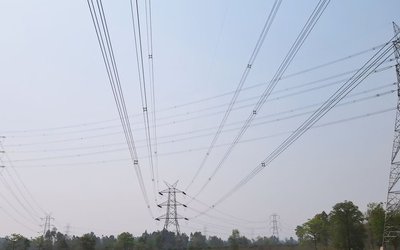
The development of the capital market in Nepal has closely mirrored the progress and changes of the Nepali economy over time. Economic liberalization in 1991 brought a boom in the capital market.
At various times, it was said that NRN investors would be allowed to invest through the budget and even through the Act, but it took a long time to materialize.
This influx of capital in Nepal would have brought about a change in the dynamics of the industry, and the capital market is different from what it was in the past, due to rapid economic growth and improved financial literacy.
The use of electronic trading platforms on the Nepal Stock Exchange (NEPSE) has further energized retail and institutional participation, aiding the development of the capital market.
The wave of digitization, especially in the late 2010s, transformed the domestic capital market and the stock broking industry. This brought about much-needed changes in archaic processes - for example, electronic KYC converters.
This has significantly reduced the cost of acquisition by eliminating the need for extensive physical infrastructure and greatly reducing entry barriers. However, there is still much work to be done.
The use of digital platforms and mobile devices has made access to capital markets simpler and more convenient, enabling companies to reach a wider audience of investors from lower-tier cities and rural areas. It has also significantly increased competition.
Modern consumers prioritize convenience in investment management. They look for platforms that integrate various financial services in one place. The rise of tech-driven business models has enabled stockbrokers to offer comprehensive solutions, offering a wide range of products.
The Khanal Commission report has also unannouncedly rejected the issue of opening a new stock exchange. It is a test of what will happen due to political reasons for this to be implemented.
It has been said that the Nepal Stock Exchange should be restructured and its capital should be increased, along with the private sector's participation in the shareholding. The Commission has also suggested restructuring CDS and Clearing Limited and providing safe depository services for securities with sufficient human resources in addition to the Nepal Stock Exchange.
The Commission has instead suggested operating a commodity exchange market. It has been stated that the Public Warehousing Act should be brought for this. In addition, it has been said that the Securities Act 2063 should be amended to change the structure of the Securities Board. It has been suggested that the provision of having a representative of the Nepal Chartered Accountants Association, the Nepal Chamber of Commerce and Industry, and the Joint Secretary of the Ministry of Law, Justice and Parliamentary Affairs be removed.
This may be due to conflict of interest. It has been said that the current system of having only one expert should be changed to have two. This is said to be a reasonable suggestion. Although the stock market has reached a low point a few days ago, it is not certain that it will rise, because the data on whether the economy has recovered some momentum has been made public.
It would not be an exaggeration to say that the confidence of all investors, both small and large, in the market has come to a low level due to the attitude of the government, regulators and central banks towards the stock market in the past.
The number of investors has increased significantly since the establishment of CDSC and the amount of investment has also increased to the expected extent, but it has not been able to maintain the same level at present.
Stock market indicators reflect short-term sentiment and immediate perceptions. The Nepali stock market also lacks depth and therefore can be moved in the short term with relatively limited changes in the perceptions of some investors.
The primary concern is to ensure that the real economy does well. If we achieve this, there is no doubt that the stock market will return to its previous state.
The main reasons for the gradual decline in the NEPSE index: Some analysts cite the lack of solid provisions related to shares, weak corporate culture, high inflation and high interest rates in the past, the presence of new shares in the market, and increased political instability.
In the past, there have been few promoters who have converted their shares into public shares and the list goes on. All these reasons lead the market to decline.
They also say that in the current situation, the stock market is down and investors have an opportunity to buy shares at a cheap price. This can somehow increase the turnover and it can be expected that the NEPSE will rise again.
When the price of shares falls by 25 percent or more, it is called a “bear” market. If the government brings a solid policy for the stock market, the NEPSE index can see some progress. Similarly, if margin lending is made easier, the benchmark NEPSE could have seen progress.
Attracting foreign investors can also revive the NEPSE index. The Securities and Exchange Board of Nepal (SEBON) should try to help ordinary investors be patient. The Central Bank should review the loan of shares and margin call system to correct the adverse situation while the interests of depositors are also well protected.
Most importantly, corporate governance should be strictly followed for companies, banks, development banks and financial institutions. In the long run, the activities of foreign institutional investors (FIIs) and mutual funds can play a significant role in the development of Nepal's capital market. It is necessary to have a conducive environment for maximum trading and a sense of urgency like bonds, which can always be used as a lemon.
A rapidly expanding capital market is necessary for an underdeveloped economy like Nepal to move forward. A market that provides long-term financial assets, including securities, corporate stocks and shares, plays a significant role in the country's financial and economic sophistication, without which limited growth is possible. The recent value of the financial sector and the development of the country as a whole can be considered.
It is against this backdrop that Nepal has realized this and towards that, the local capital market has gradually developed. The capital market of Nepal has to fulfill two main objectives. It should generally support the process of economic development by mobilizing long-term funds from the investing public to finance public development programs and private investments.
Second, the capital market encourages private enterprise by providing a convenient means of raising capital for institutional investment and expansion. Historically, the capital market for long-term funds was dominated by the issue of government bonds and securities. Not all the funds raised have been spent on development projects.
However, the market for the issuance and trading of corporate stocks and shares is gradually expanding. The steady growth of the economy and the rapid expansion of the private sector have increased the need for long-term investment funds.
Along with this, the financing of corporate investment in Nepal, which was traditionally financed by the entrepreneurs' own capital through family-owned companies, has shifted to public limited companies listed on the stock exchange.
There should be no doubt that the capital market, which is considered a very sensitive sector of the economy, is stimulated and the wrong message is sent to the market. In principle, the stock market promotes economic growth by increasing the level of investment and productivity.
They also increase the saving rate and increase the efficient distribution of savings. As a result, more savings go to the corporate sector and economic growth is expected.
The establishment of the Nepal Stock Exchange has brought about significant changes in the functioning of the capital market in Nepal, especially with the liberalization policy adopted in the nineties and the automation of trade and the operation of the Central Depository System a few years ago.
The growth of the Nepali stock market, which has reached record heights, has also continued. The emphasis should be on ensuring that small investors have access to credit in the stock market, and on the one hand, a few people take bank money and earn crores of rupees in the stock market and on the other hand, small investors are not cheated.
The capital market should operate at its own pace and pace without any external influence, and if the market crashes, it will have a profound impact on many other sectors and the economy will fall into a vicious cycle.
Speaking of neighboring China, it is necessary for communist leaders to study the path taken by Deng Xiaoping after he came to power from 1978 to 1989, how he developed capitalism there, and the background of China becoming the world's second largest economy today. It is a given that the capital market there has made a major contribution to China's current situation.
China's stock exchange is one of the 'best equipped' and most advanced in the world. Deng understood capital and led the country to a capitalist system during his 11-year leadership. If we look at another neighboring country, India, its capital market also provides 'capital supply' for new companies to come.
A new company needs money, and it raises that money from the capital market. It uses that capital to produce,
Even if we look at another neighboring country, India, the capital market there provides 'capital supply' for new companies to come in. If a new company has to come in, it needs money, and it raises that money from the capital market.
By mobilizing that capital, it produces, creates jobs, earns income, pays taxes on it, and the government receives revenue. This is just a representative example of how the capital market has a multifaceted impact on the economy. The capital market is about sitting in a room and using a computer to make money and robbing and cheating the small ones, which is completely wrong.
But it is a means of creating capital (capital formation) and value creation, which is necessary for the economic development of the nation. The capital market is affected by information, the financial condition of the company, the economic condition of the country, political reasons, and the market situation. Therefore, the capital market is 'predictable' to a large extent.
- Nepal's Participation In The Landlocked Developing Countries (LLDC) Conference
- Aug 04, 2025
- Susan's “U-Turn” From Atheism To Spirituality And Superstition: Some Considerations
- Jun 29, 2025
- Former Ambassador To People’s Republic Of China Acharya's 'Diplomatic Diary': A Collection Of "Autobiography " Including Diplomacy
- Jun 17, 2025
- Banker And Businessman Being The Same Person: How Practical, How Impractical
- Jun 01, 2025
- 2082/83 Policy And Program: Presentation New, Short But Not Exciting
- May 07, 2025
















